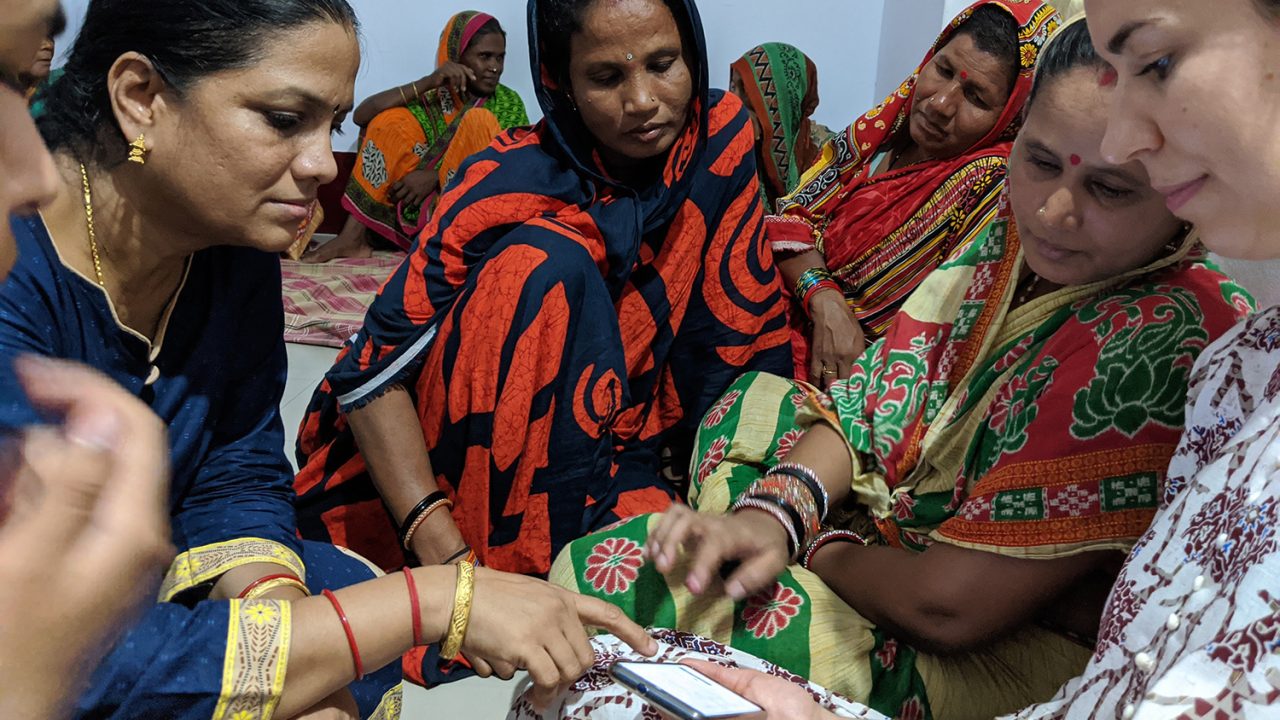Nearly half of all fruit and vegetables produced globally are wasted each year, according to the United Nations. This has implications for food insecurity, climate change, and for economic security and mobility of the world’s agricultural workforce.
Fighting food waste, in other words, has the potential to be a force multiplier for social impact.
And that’s exactly what the Basel Agency for Sustainable Energy (BASE), together with its partner Empa (The Swiss Federal Laboratories for Materials Science and Technology) is working to accomplish through data science for social good — working with communities to fight food waste while lifting the livelihoods of small farmers and simultaneously advancing the core of BASE’s work: driving investment in climate change solutions.
The Challenge
BASE is a Switzerland-based nonprofit that develops business models to unlock investments in clean energy. For more than 20 years, they have worked across sectors at the intersection of climate solutions, finance, and international development.
In recent years, the BASE team has taken an interest in cooling, starting in 2018 with commercial air conditioning and industrial refrigeration. With many cooling users opting for less energy-efficient solutions to save on the upfront investment despite higher operational costs, BASE helped choreograph a shift to a subscription model instead, where the burden of ensuring efficient operation falls on the provider and individual users can purchase cooling as they use it.
The success of that effort, known as the Cooling as a Service Initiative, sparked new ideas and illustrated new challenges.
“There’s a lot we can do beyond the business model. We realized that tailoring this to the agricultural cold chain is a key piece of the puzzle to address food security. By integrating digitalization, we facilitate the adoption of the model by local entrepreneurs as well as its scaling-up. ” said Thomas Motmans, senior sustainable energy finance specialist and the project lead at BASE.
The extensive experience of Empa’s SimBioSys group with analyzing and reducing food loss in post-harvest supply chains as well as with physics-based modeling to predict fresh produce shelf life showed to be highly synergetic to extend the solution to the agricultural cold chain.
Access to cooling improves the bargaining position of farmers and small market traders by extending produce shelf life and providing beneficiaries with the option to wait for better market prices instead of distress selling at the end of the day. This decreases food loss, increases farmers’ income, all while minimizing the impact on the environment by using sustainable technologies.
Thomas Motmans Senior Sustainable Energy Finance Specialist Basel Agency for Sustainable Energy (BASE)
BASE and their partners at Empa launched an interdisciplinary consortium for a deep dive into the problem of food waste, starting in India, one of the world’s largest food producers. As much as 35 percent of the fresh food produced in India is wasted, largely due to a lack of proper refrigeration. In fact, only 6 percent of the country’s food moves through the cold chain, compared to about 60 percent in developed countries.
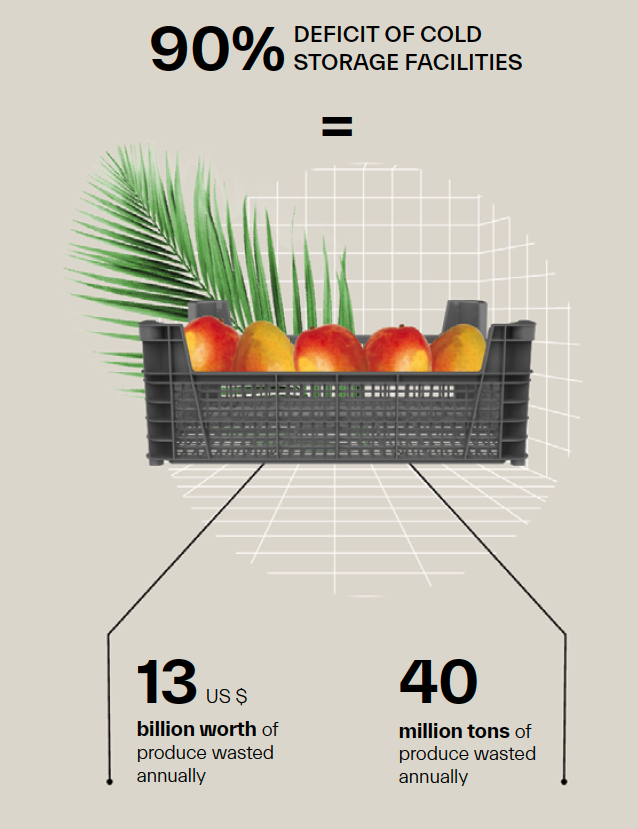
But the problem of food waste is widespread, and BASE and Empa, informed by feedback and ideas from global users, began to see applications for cold chain solutions around the world.
The Solution
Through the project, Your Virtual Cold-Chain Assistant, BASE, and Empa are enabling a business model in which farmers can access cooling services on a pay-per-use basis, and have developed a mobile application, that facilitates the implementation of the model. The open-access, data science-based mobile application uses machine learning and physics-based food modeling to provide smallholder farmers with actionable post-harvest and market intelligence.
While initially, BASE and Empa conceptualized the solution to be used by farmers only, it became clear in early, local conversations that the operators of cold rooms would become important users of the app and that some farmers without access to smartphone technology might be excluded. They started to rethink the approach and co-create the solution together with the users.
From the perspective of the farmer, the main benefit of the app is that they will receive real-time information about when the produce in storage is reaching the end of life, which combined with market price forecasts means that they can better leverage cooling to achieve better prices in the markets.
Roberta Evangelista Sustainability Data Science & Digitalisation Specialist Basel Agency for Sustainable Energy (BASE)
This resulted on the one hand in adding the operators of cold rooms as primary users and on the other hand in enabling the communication of data by these cold room operators to the cold room users via SMS messages for those farmers, or members of farmers’ households, having access only to feature phones.
“It’s really important to understand who will be using the app, engage with them to collect feedback, and ensure the solution is tailored to technical capability and infrastructure,” Evangelista said.
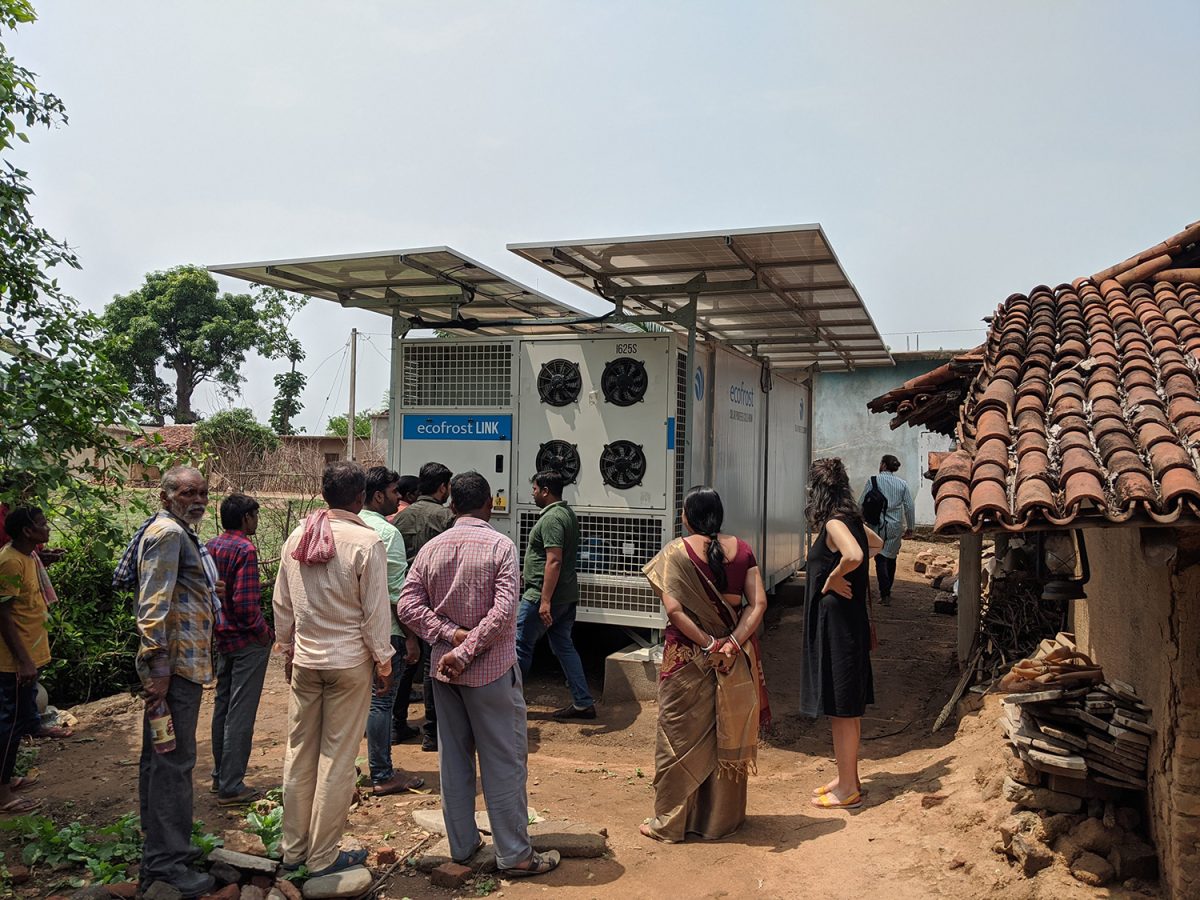
Cold room operators themselves also benefit from the application in a few different ways. The mobile app works as a digital inventory, simplifying check-in and check-out operations and eliminating the need for operators to manually input the information of individual farmers.
Removing that labor-intensive element of the process that is also prone to error, along with the features of remote monitoring of temperature, occupancy, and revenue generated by the room, helps local entrepreneurs to scale up their operations and grow their businesses.
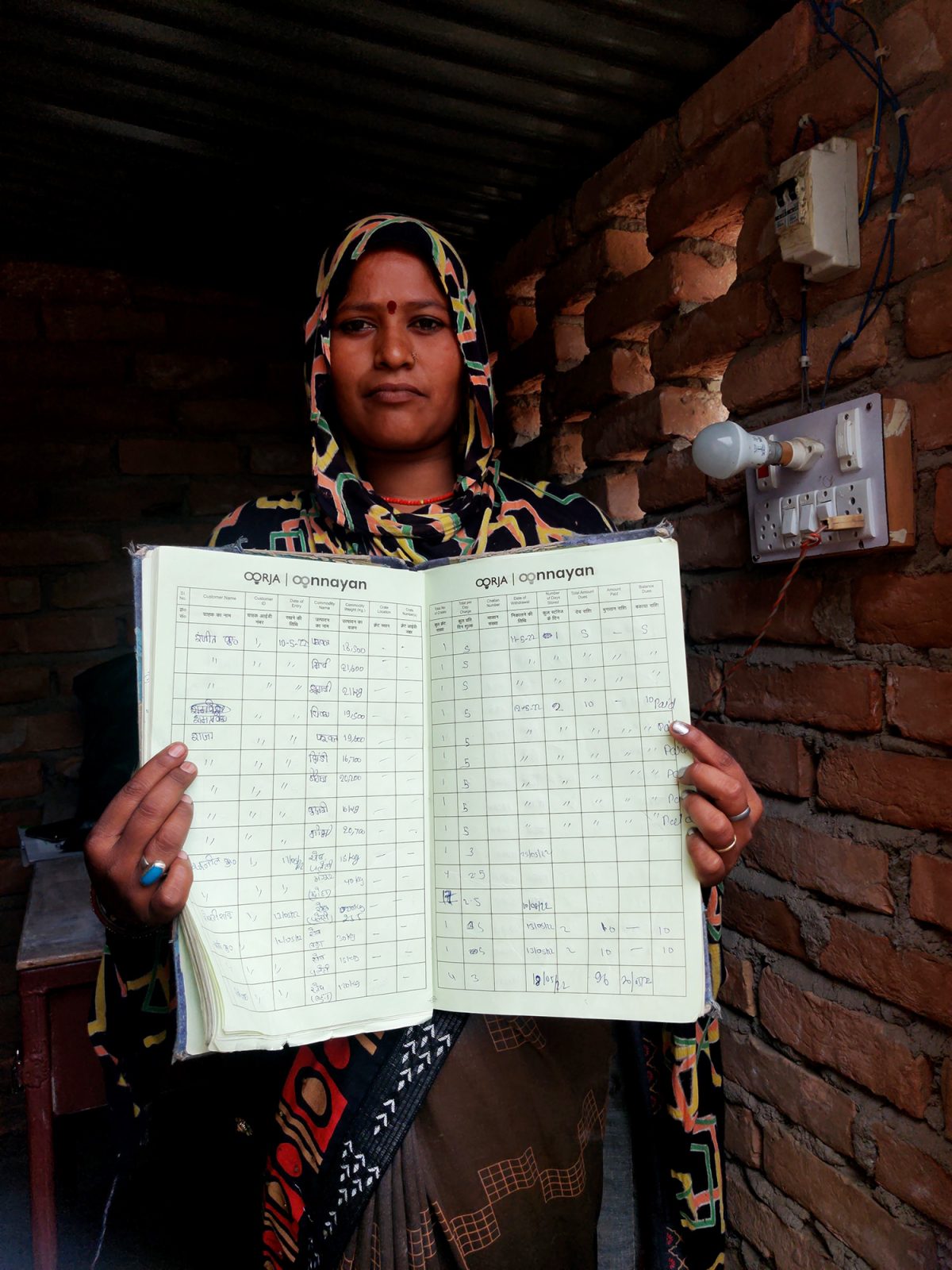
Anchored to BASE’s long-standing work in developing more efficient business models, they have also used these connections with cold room operators to roll out the pay-per-use model in partnership with three local cooling providers – CoolCrop in Himachal Pradesh, Koel Fresh in Odisha, and Oorja in Bihar. Under this business model, farmers gain access to solar-powered cooling while only paying for the amount of food they store per day in the cold rooms. This makes cold chain storage more affordable for smallholder farmers in the process. Service providers who own, maintain, and operate the cooling facilities are incentivized to think long-term and use efficient systems. That paradigm shift will continue as the solution including the business model and the app is rolled out and expanded into more territories.
With the post-harvest and market intelligence that it provides, the application makes data science actionable for farmers.
“We call it upcycling,” said Thijs Defraeye, group leader of Empa’s Simulating Biological Systems Group. “We translate the data into useful recommendations for the people on the ground.”
Integrating the digital twins that we have been developing over the past years in the mobile app makes this model easy to use for farmers and cooling operators.
Thijs Defraeye Group Leader, SimBioSys Swiss Federal Laboratories for Materials Science and Technology (Empa)
The app sensors capture data points like temperature and humidity—information that on its own may not be helpful to a farmer—and transforms them into usable indicators. For instance, the solution helps smallholder farmers remotely track the shelf life of their crops in storage based on real-time sensor data. Together with the app’s upcoming feature to forecast daily market prices for different commodities using open-source data from markets across India, more accurately and efficiently tracking the lifecycle of their products allows users to better leverage the benefits of cooling and plan when and where to sell their crops to secure higher prices.
“From the perspective of the farmer, the main benefit of the app is that they will receive real-time information about when the produce in storage is reaching the end of life, which combined with market price forecasts means that they can better leverage cooling to achieve better prices in the markets,” explains Roberta Evangelista, sustainability data science and digitalization specialist for BASE.
Currently, when food outside of the cold chain is reaching the end of its shelf life, farmers are often forced to distress sell it at significantly reduced prices or waste it, a financial hit to their business. The Your Virtual Cold Chain Assistant solution enables farmers and traders to leverage cooling as a solution to delay the decay of perishable produce, store leftover products overnight before they can sell at full price the next day, and better plan when and where to sell their produce to maximize their income.
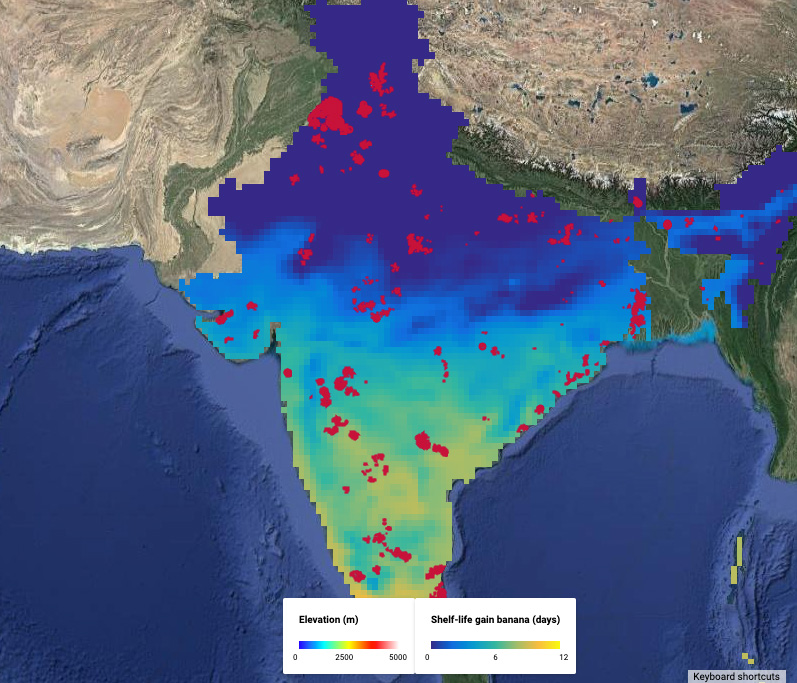
In addition, the project team has developed a multi-layer, interactive map of India (available here) to help players along the fresh food supply chain with decision-making, using widely available open-source agricultural data from different domains.
“This is a game-changer for farmers,” Motmans said. “Access to cooling improves the bargaining position of farmers and small market traders by extending produce shelf life and providing beneficiaries with the option to wait for better market prices instead of distress selling at the end of the day. This decreases food loss, increases farmers’ income, all while minimizing the impact on the environment by using sustainable technologies.”
Pilot projects were launched in India in partnership with the three local cooling companies mentioned above, and the efforts are already being expanded to Nigeria, with plans to expand to yet further geographies and to new sustainable agriculture technologies.
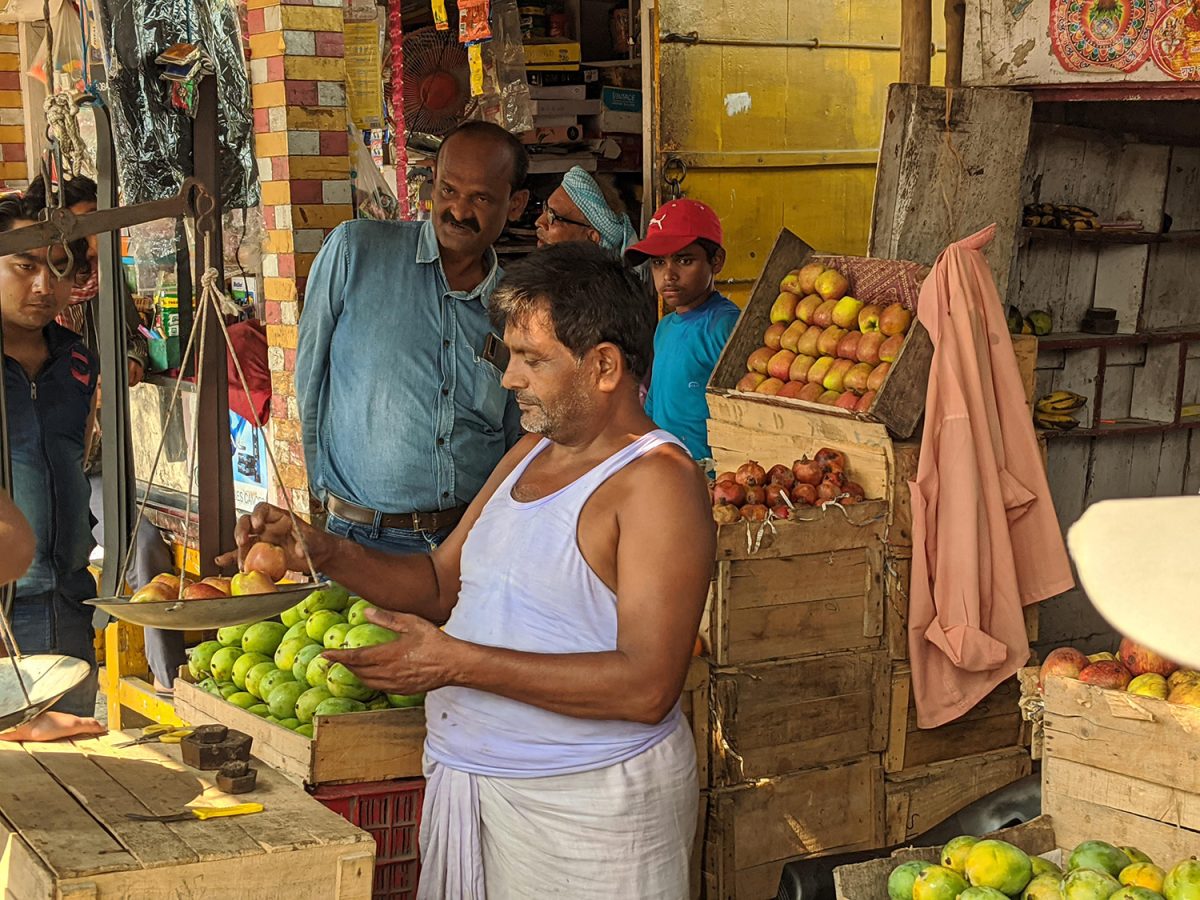
The Takeaway
The team believes the app can be, as Motmans says, a game-changer, but users are hungry for additional resources and training as they help to expand use and development of the app. A capacity-building toolkit is being designed with users to include elements tailored to each audience. Cold room operators, for example, will receive tutorials in text and PDF format, while farmers have responded well to early concepts for comic strips and videos, translated into the local languages.
Workshops to train users and collect feedback on the solution have already been carried out and will be rolled out more broadly during the remainder of the year. These will include train-the-trainer sessions to extend the reach of users.
As part of the extension of the project commissioned by the German Federal Ministry for Economic Cooperation and Development (BMZ) and implemented by BASE in partnership with Empa on behalf of GIZ, the team is also creating an incubator program where they will train additional companies to start using the solution.
Taken together, these resources, paired with a constant feedback loop, will allow the team to track new ideas for optimization and expand beyond India and Nigeria around the world. Once fully operational, the team anticipates that participating smallholder farmer incomes could increase by 10 to 30 percent per year, at the same time that food security is improved and greenhouse gas emissions are reduced.
“The depth of the solutions we’re achieving is much more than we could ever have done before,” Defraeye said. “We are changing the way people think of post-harvest. We are shaping how to use data science for good.”
